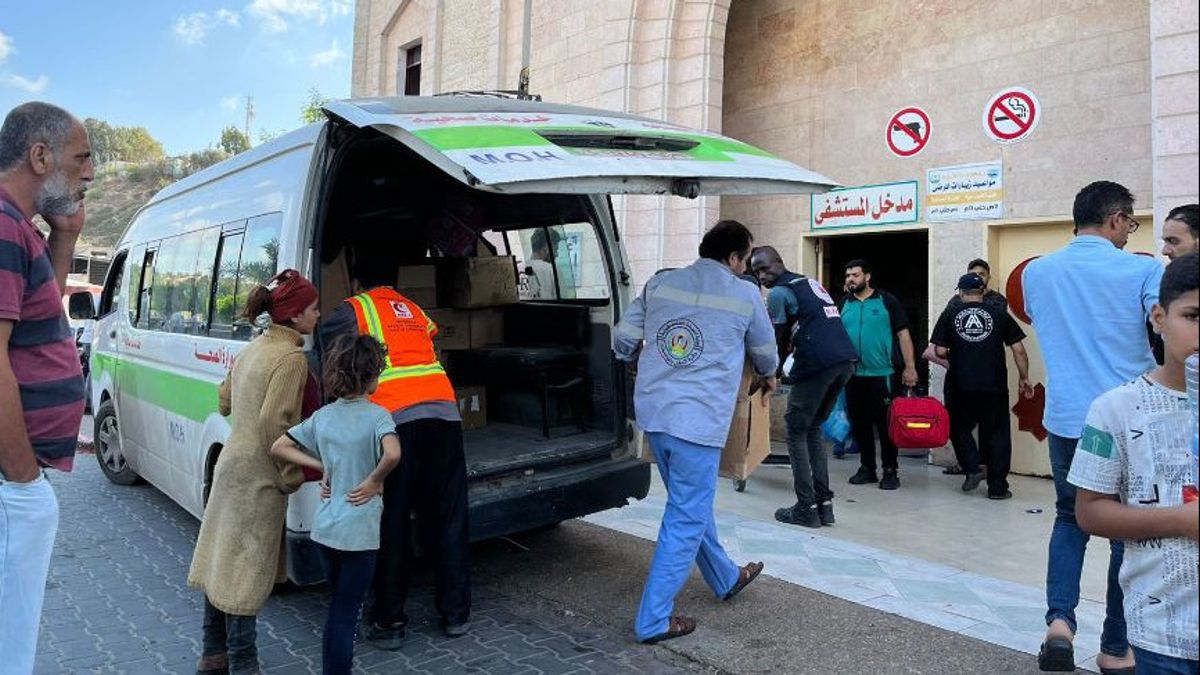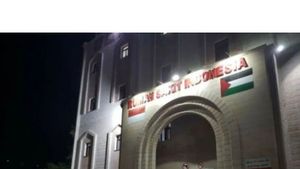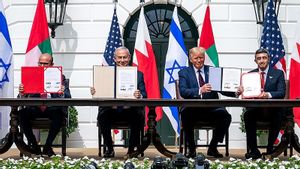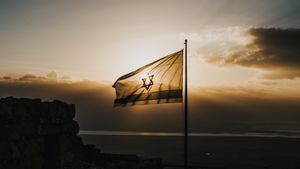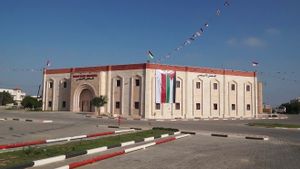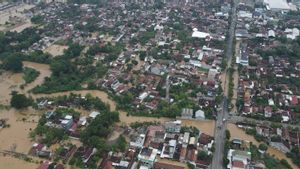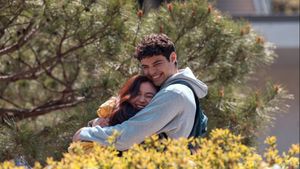"Being a medical team on the battlefield is a heart call," said the General Chairperson of the Indonesian Doctors Association (PB IDI) Dr. dr. Moh. Abid Khumaidi, SPOT. Because when medical personnel have to be involved in conflict areas, not only his skills are needed, but also his enthusiasm and courage.
These two things are the capital for two "warfield specialists" doctors, Dr. dr. Idrus Paturusi, SpOT and the Chair of the MER-C Presidium dr. Sarbini Abdul Murad. Both have fallen into conflict areas several times including Afghanistan and Palestine.
Although courage is needed, dr. Abid reminded the importance of self-security while on duty to carry out humanitarian missions in conflict areas.
"When we enter a potential war area, there is something that must be considered, namely safety first. Safety for us, safety for the community, don't let us become victims there," said dr. Abid in the IDI briefing media last weekend.
The experience of being on the battlefield has been experienced by Prof. Dr. dr. Idrus Paturusi, SpB, SpOT (K). Idrus was once one of the medical teams that flew to Afghanistan in 2001 during a conflict with the Taliban. At that time the United States sent military forces to overthrow the Taliban from its rule in Afghanistan. Conflict was inevitable.
Idrus and the Indonesian medical team departed from Makassar on October 29, 2001. They were accompanied by Jusuf Kalla, who at that time served as Coordinating Minister for People's Welfare, from Jakarta to the capital city of Pakistan, Islamabad.
Apart from Jusuf Kalla, in the group there were also members of the Indonesian House of Representatives Andi Mattalatta and Malkan Amin, as well as the General Secretary of MUI Dr. KH. Muhammad Sirajuddin Syamsuddin, MA.
"We departed from Jakarta using Hercules planes for almost 30 hours before arriving in Islamabad. At that time we also brought aid to people in Afghanistan," Idrus recalled.
The Indonesian medical team had time to rest for a full day at a hostel before continuing their journey to Afghanistan. In the midst of calm and cold weather, the medical team was suddenly shocked by the sound of a bomb explosion that boomed several times. Those who are in conflict areas for the first time are certainly worried.
The movement feels up to the bed occupied. The heart feels like it wants to be removed every time a bomb explodes. The sound of US warplanes roared loudly and it felt like it was just flying from the roof of the hostel, "recalled Idrus.
The outburst of bombs and the roar of warplanes made several members of the Indonesian medical team unable to sleep. This is the first time they have actually been in real combat areas, with the sound of low-flying fighter aircraft and bomb explosions everywhere," said the Professor of the Faculty of Medicine, Hasanuddin University.
Doctor Idrus, who has been a medical team several times in war areas, said what he experienced in Afghanistan was not as heavy as what is happening in Gaza today.
What happens in Afghanistan when compared to Gaza, maybe only 1/10. What is happening in Gaza today is extraordinary because it is more than 10 thousand," he said.
Another story shared by the Chairperson of the MER-C Presidium, dr. Sarbini Abdul Murad. The doctor, who has joined the MER-C since 1999, is an important figure in opening access to health in Gaza. MER-C itself has been committed to providing assistance to Palestine since 2007.
"Palestinian is our eternal program," said Sarbini while sharing her experience via zoom.
In 2007 the man who is familiarly called dr. Ben was sent to pave the way for Palestine. For nine months Sarbini worked hard from Egypt to Gaza and faced major challenges in order to obtain permission to cross Sinai, a limited area of military operations.
"At that time it was only a discourse, nothing concrete. We have to decide to start the road, what we have to do and what we have to do to get into Gaza," he said.
In Israel's 2008 attack on Gaza, the MER-C and the Indonesian Department of Health sent aid consisting of a medical team, including Sarbini, amid difficult conditions.
"The attack was extraordinary, the sound of bombs was everywhere, but there was no ground operation. It was an intense attack," said Sarbini.
When he first arrived at Al-Shifa Hospital, dr. Sarbini admitted that he was afraid to hear the sound of drones and take a temporary plane every night. But over time he enjoyed it even as if he was a sleep introduction.
"Initially it was terrible but for three or four days, how come they enjoyed it for so long, so they were sleeping," he explained.
Palestinians, especially Gaza, have repeatedly faced war, although this is said to be the largest Hamas-Israeli conflict since 2014. The death toll from Israeli attacks in Gaza reached 11,000 people, including 4,506 children. But Sarbini said he was amazed that the people in Gaza remained calm despite facing various difficulties.
"They have been in war for so long that their genetics are more adaptable to the situation," he said.
Not only providing medical assistance, Sarbini was also involved in another humanitarian mission, namely looking for domestic assistants from Indonesia who were detained. He even had to go to a prison full of phosphorus bombs.
SEE ALSO:
Dr Sarbini said, this is an experience that teaches about courage, resilience, and humanitarian solidarity.
"It's not just work, but a humanitarian call that must be answered with heart and courage."
Starting from the 2007 humanitarian mission, the MER-C then built an Indonesian Hospital in Gaza in 2012, whose funds came from donations from the Indonesian people. RS Indonesia is the second largest hospital in Gaza after Al-Shifa.
However, due to the Israeli attack, the condition of the Indonesian hospital is chaotic and currently has not received electricity and fuel supplies. The medical team even had to use a flashlight to carry out treatment.
The English, Chinese, Japanese, Arabic, and French versions are automatically generated by the AI. So there may still be inaccuracies in translating, please always see Indonesian as our main language. (system supported by DigitalSiber.id)
